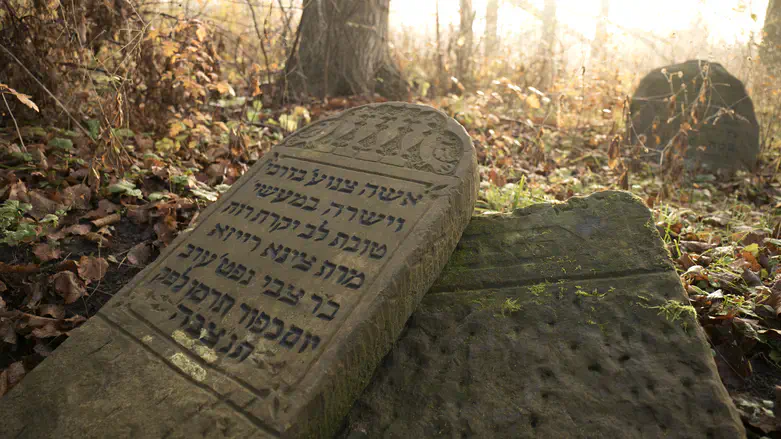
On January 27th, King Charles III became the first monarch to visit Auschwitz-Birkenau in Poland, marking the 80th anniversary since the liberation of the death camp that came to symbolize more than any other location, the horrors of the Holocaust and the killing of Six Million Jews. Other heads of state and dignitaries from all over the world were also present.
Representing the State of Israel, the home to the largest number of Holocaust survivors in the world, was education minister Yoav Kish. Not Israel’s Prime Minister or another high-ranking official. This was not by chance and will appear as another dark page in the history of Jews in Poland.
Over the past two decades, we have seen Poland choose multiple diplomatic quarrels with everyone from President Barack Obama to Israeli Prime Minister Lapid to Germany, as well as with many individuals, myself included, over the role of Polish individuals in perpetrating the Holocaust. In 2018, Poland even passed its infamous “Holocaust law,” which criminalized speaking of various aspects of Holocaust history if they cast Poland in a negative light.
Poland attempted to distance itself from the heinous levels of antisemitism that ultimately resulted in the horrors of the Holocaust. Sadly, following the horrors of October 7th–the worst pogrom against Jews since the Holocaust, Poland failed the second chance it was given to refute antisemitism and show that its sensitivity to connecting the Holocaust with Poland was misplaced..
Less than one month after the horrors of October 7th, 2023, Poland had already seen rallies in Krakow and Warsaw protesting against Israel.
Even while Polish-born Holocaust historian Alexander Danzyg was being held hostage by Hamas in Gaza, already on October 25, 2023, Polish Foreign Minister Zbigniew Rau, rushed to meet with ambassadors of Middle East countries hostile to Israel, announced increased funding for UNRWA, and went on to abstain from Jordanian resolution in the UN, calling to force Israel to stop all military responses to Hamas.
While Poland was quick to act against historians like Barbara Engelking and Jan Grabowski for their work documenting the role Polish individuals had in assisting the Nazis during the Holocaust, somehow, it was not able to stop Polish artist Igor Dobrowolski posted a video of himself standing outside Auschwitz with a sign in red saying: “Israel created the largest death camp in history.”
Yet, while the actions of this individual or another do not convey the full picture, there is no missing the symbolism of the official statement of Poland’s government saying it would enforce the International Criminal Court’s arrest warrant against Israeli Prime Minister Netanyahu if he came to Poland to observe International Holocaust Remembrance Day in Auschwitz. Imagine going back in time to the year 1945 and telling the surviving prisoners in the Auschwitz death camps that in the coming years, not only will Poland refuse to prosecute Polish individuals who helped kill millions of Jews, but that it would also pass amnesty laws to protect those perpetrators, and then ban an Israeli Prime Minister from entering a memorial for those killed during the Holocaust in Poland.
While Poland later rescinded this statement, its shadow had clearly given enough concern to Israel’s Prime Minister and high ranking officials, not to attend something as important as the 80th anniversary of the liberation of Auschwitz.
Opening his speech at the trial of Adolf Eichmann, Israeli Attorney General Gideon Hausner famously said: "When I stand before you here, Judges of Israel, to lead the Prosecution of Adolf Eichmann, I am not standing alone. With me are six million accusers. But they cannot rise to their feet and point an accusing finger towards him [Eichmann] and cry: "I accuse. For their ashes are piled up on the hills of Auschwitz and the fields of Treblinka and are strewn in the forests of Poland. Their graves are scattered throughout the length and breadth of Europe. Their blood cries out, but their voice is not heard. Therefore, I will be their spokesman.”
The first and foremost duty we have when discussing the sacred memory of the Holocaust and its victims, is what would those whose voice was robbed from them in cold blood say today. It is fair to say they would like to see Poland live up to its claims of ending Jew hatred and insistence that it was forced to allow the construction of concentration camps on its soil after the German conquest, and, instead, treat the Jewish people and state without hostility today.
Rabbi Elchanan Poupko is an eleventh-generation rabbi, teacher, and author. He has written Sacred Days on the Jewish Holidays, Poupko on the Parsha, and hundreds of articles published in five languages. He is a member of the executive committee of the Rabbinical Council of America.